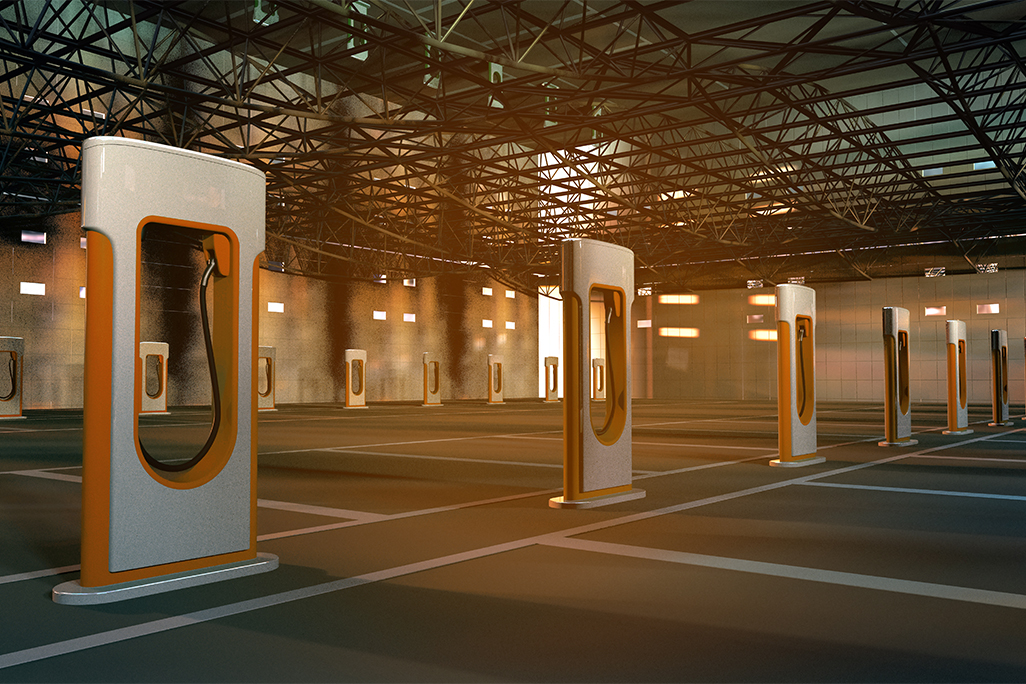New Aragonese Decree-Law undertakes an important transposition of regulations not transposed by the State in energy matters and creates the so-called "local consumption"
Published on 8th May 2023
The new regulation covers direct lines, self-consumption, energy communities, closed distribution grids, administrative milestones, etc

On 21 March 2023, Decree-Law 1/2023, of 20 March, on urgent measures to promote energy transition and local consumption in Aragon (the "Decree-Law 1/2023"), came into force, which regulates numerous energy-related issues. The regulation has been validated by the Aragonese Parliament on 30 March 2023, ahead of the State, by transposing European regulations on energy matters that are still pending before the State legislator.
Local consumption
The concept of proximity consumption is introduced, which is configured as that which by means of direct lines, through any form of self-consumption, energy purchase contracts or other supply formulas, links production plants with end consumers, all of them located in Aragon, reducing energy costs.
Projects of this type may be prioritised as associated renewable generation projects.
Direct lines
These are electricity lines that do not form part of the transmission or distribution grid and connect the following points: (a) an isolated generation site with an isolated customer, (b) a producer and an electricity supply company with the status of marketer, for the supply of its own installations, subsidiaries and customers, using any type of self-consumption modality, and (c) a generation installation close to the internal grid with one or several consumers under a self-consumption regime.
All generators and supply companies established in Aragon may supply electricity through a direct line running exclusively through that Autonomous Community to their own installations, subsidiaries and customers.
These lines shall be declared to be of public utility and social interest for expropriation purposes and may be constructed at least as part of the following projects:
(a) stand-alone plants for the generation of electricity from renewable sources.
(b) plants intended for self-consumption without surplus that do not have an access and connection permit.
(c) production plants having an installed capacity greater than that which they may evacuate according to their access and connection permit, whether hybridised or not.
(d) plants for the production of renewable liquid and gaseous fuels of non-biological origin.
Self-consumption
Producers and consumers may build and operate direct lines that run entirely within Aragon and establish and operate internal grids of any voltage level for self-consumption, through two types of self-consumption with and without surplus, as provided for in the state regulations.
Energy communities
Energy communities are legal entities that have the capacity to exercise rights and be subject to obligations, are based on the open and voluntary participation of their members, are autonomous and have as their main objective to provide environmental, economic or social benefits to their members or partners in the area where they operate. They are classified as citizen energy communities and renewable energy communities. If they involve local authorities, they may be considered as local energy communities.
- Citizen energy communities: their effective control is exercised by members or partners who are natural persons, local authorities including municipalities, or small companies whose main field of economic activity is not the energy sector. They develop activities of thermal and electricity generation, distribution, supply, consumption, aggregation, energy storage, energy efficiency, mobility services, or any other energy services to their members or partners.
- Renewable energy communities: these are made up of partners or members who are natural persons, SMEs or local authorities, with effective control in the vicinity of the projects. They will be able to produce, consume, store and sell renewable energy through renewable energy purchase contracts and share the renewable energy produced by the installations, as well as access energy markets and even provide mobility services.
Both modalities will be able to share among their members the renewable energy produced by the production units they own, or operated and used by them.
Likewise, energy joint communities are created, formed by renewable energy communities and, where appropriate, by other people or entities with which they share objectives or interests. Those in which local entities participate may be considered as local energy associations.
Both the communities and the energy joint communities must be registered, by means of a responsible declaration in the administrative registry of communities and energy joint communities created by means of this regulation.
Closed distribution grids wholly located in Aragón
Closed distribution grids are distribution grids which are wholly located in Aragon and which are classified as such by the Department of Energy. They are intended to distribute electricity in a geographically confined industrial, commercial or shared services area which does not supply electricity to domestic customers. They must meet one of the following requirements:
- The operation or production processes of grid users must be integrated for technical or security reasons.
- The grid distributes electricity to the grid owner/operator or its related companies.
Their authorisation, when they do not fall within the competence of the State, shall be the responsibility of the Aragonese Department responsible for energy matters.
Guarantee of environmental and economic efficiency
A provision is introduced whereby surplus energy produced in installations with an installed capacity greater than the access capacity of the access and connection permit, can be supplied via direct lines through individual or collective self-consumption without surplus, ensuring that the internal grid cannot feed energy into the grid.
Where ancillary production infrastructure is connected to a consumer who is simultaneously connected to the grid, express authorisation from the Directorate-General for Energy shall be required.
Regulation of priority projects and investments with associated renewable generation
These are those that incorporate associated generation plants for their energy supply.
The declaration of investment of regional or general interest of projects with associated renewable generation due to their special economic, social and territorial relevance, will be considered a priority for the economic development of Aragon. This declaration extends to the project as a whole (the investment project or action and the associated production installation).
The declaration will entail the preferential and urgent impulse in the processing, the maximum administrative coordination, the permanent contact with the promoter in the development and execution of the project, and the permanent monitoring of the state of the processing of the dossier.
In addition, the expropriations required for the execution of these projects and which are processed and authorised as a Plan or project of general interest for Aragon are declared to be of public utility or social interest.
On the other hand, the Registry of Renewable Energy Producing Entities is created for priority projects, of a voluntary and merely declarative nature.
Energy measures in relation to planning instruments
The implementation of installations for the production and use of renewable energy, including storage, electric recharging, hydrogen or other renewable gases, will be encouraged on land destined for public installations and equipment that are included in a Plan of General Interest of Aragon or in Supramunicipal Projects, as long as their execution is not foreseen. Reversion is foreseen in the event that implementation of the public equipment is finally necessary.
In addition, the creation of surface rights, leases or other legal transactions on land owned by the administration included in a Plan of General Interest or Supramunicipal Project may be promoted in order to implement the renewable energy production and use installations for collective self-consumption.
On the other hand, the Plans and Projects of General Interest of Aragon will preferably be located on undefined land for development or generic land for development, although they may be located on other types of land with due justification.
Mandatory and non-binding regional report on access and fair transition competitions
Within the capacity allocation procedures in nodes located in Aragon called under Article 33.10 of the LSE and just transition, Aragon shall issue a mandatory report in defence of its competences and interests, in particular on the social, economic, urban planning, environmental and anti-population effects that the tender may generate.
The aforementioned report shall not be binding, however, if the report includes objections of legality, and these have not been taken into account in the resolution of the tender, a report shall be requested from the Directorate General for Legal Services in order to decide on possible actions to be taken against the tender resolution.
Demand management and aggregation
New regional regulations are foreseen in relation to electricity demand management systems to adapt them to the availability of generation and the distribution and transmission infrastructure.
Aragonese Energy Solidarity Fund
The Aragonese Energy Solidarity Fund is created to promote economic development and fight against depopulation in territories where energy is produced from renewable sources, the distribution of which will be carried out by means of an agreement of the Government of Aragon at the joint proposal of the departments responsible for local administration and the Treasury.
The aforementioned fund will be used to finance, among others, the following actions that may be selected by the municipalities (never to finance current expenditure): promotion of renewable energies and energy efficiency, energy self-consumption, sustainable mobility, water efficiency and saving, fair energy transition, biodiversity conservation, economic development and the fight against depopulation.
The recipients of the Fund will be the municipalities located in Aragon that are directly or indirectly affected by the installations for the generation of electricity from renewable sources.
Planning and zoning
Aragon is expected to assess the environmental zoning for the implementation of renewable energies of the MITECO, in order to declare the suitability of certain areas of Aragon to host renewable energy production plants, either absolutely or gradually. This suitability will not have any effect on projects that are already in the pipeline.
Authorisation of increases in installed power or hybridisation
An increase in installed capacity or hybridisation of already authorised generation installations may be authorised when the same connection point is used and access capacity is not increased.
Modification of evacuation lines
Final electricity consumers may propose to the distribution system operator to connect to an evacuation line, subject to the agreement of the owner and the appropriate compensation. To this end, the applicant must bear the cost of the new infrastructure, which will be integrated into the distribution grid.
This possibility will be conditional on the modification or updating of the access and connection permits of the generators using the evacuation line.
Implementation of milestones of Royal Decree-Law 23/2020 of 23 June, approving measures in the field of energy and other areas for economic recovery
Wind power generation projects will be exempted from obtaining prior administrative authorisation for the purposes of accrediting the third administrative milestone, as this will be granted jointly with the administrative authorisation for construction.
With respect to other renewable energy production installations, if at the entry into force of this regulation the prior administrative authorisation and the construction authorisation have been applied for jointly and the application has been accepted for processing, the third milestone will also be exempted.
Such exemptions shall be certified by the substantive body in writing to the system operator.
Future regional regulations in the energy field
Decree-Law 1/2023 foresees, within one year from its entry into force, the reform of the Law on Cooperatives of Aragon to include energy cooperatives as a specific type of cooperative, and, on the other hand, the submission of a draft energy law by the Government of Aragon to the Aragonese Parliament.
If you would like to know more about the new regulatory and energy sector legislation and its possible implications, please do not hesitate to contact one of our experts listed below or your usual contact at Osborne Clarke.





